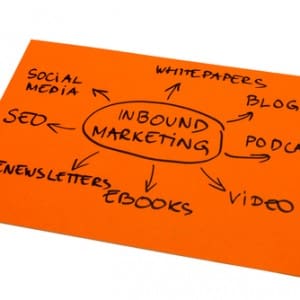Topics
Beyond Customer Feedback: The Keys to Knowing What Your Customer Really Wants
 Kent Potts, EVP Marketing, Skura Corporation
Kent Potts, EVP Marketing, Skura Corporation
Today’s enterprise sales and marketing teams face some very unique challenges. The advancement of technology, the expectation of marketing materials to be readily available online and the expanding social ecosystem that provides insight and clues into prospective customers make the role of these departments more multi-faceted than ever before. The importance of cohesion amongst these teams cannot and should not be underestimated when developing lead generation strategies and there are a few key steps your company must take to truly know — and appropriately respond to — the customers’ needs.
Creating Customer Personas
A recent eMarketer study cited targeting content as a top priority for 47% of savvy companies and creating customer personas and bucketing prospects into categories based on their behaviors can allow you to anticipate needs and effectively target buyers with your content. Customer personas help everyone — from marketing to sales to IT — internalize the ideal customer that you’re trying to attract, and relate to these customers as real humans. Understanding your buyer persona is critical to driving content creation, product development, sales follow up, and really anything that relates to customer acquisition and retention. Establishing customer personas gives you a structured look at your customers’ goals, the features and content that matters most to them, and the messaging that will differentiate your brand and product from your competitors.
Tracking Customer Behavior
Asking what your customer thinks during a sales presentation is helpful, but knowing what your customer actually does after the sales meeting is far more powerful. Knowing where they are clicking, with whom they are sharing a deck, and how long they are staying on each page offers valuable insight into where their focus is. To ensure marketing materials are relevant and compelling, companies need to prioritize the sharing, analysis and application of these insights by the minute, so personalized experiences can be served in real time. Companies that use adaptive sales enablement technologies that harness this immediate influence, capability and power will certainly see an uptick number of conversions.
Be Their Concierge
In essence, a salesperson is a concierge — an accommodating facilitator floating between customers and products/services with the primary goal of satisfying the customer. An all-too-common sales mistake is relying on the customer to come to you with exactly what they want. The problem lies in the Internet and its influence on today’s B2B sales process. Buyers are increasingly self-propelled — consuming Internet-based information and engaging a sales professional later and later in the process. By the time sales is approached, buyers have likely formed their opinion, leaving less room for sales professionals to influence the process. By trying to solve a problem, rather than simply pushing your product, you’re adding value and building loyalty by “playing the long game” — which will ultimately benefit your company more than just making a quick sale.
Keep Your Content Fresh
Maybe it goes without saying, but presenting the right materials to your prospect is useless if the materials are out of date. Today’s marketing/sales ecosystem moves so quickly that a quarterly update of content just won’t cut it. Marketing materials should be updated on a rolling basis so they are always fresh and always represent the latest information.
Take a look at your sales and marketing teams. Are they aligned? Do they communicate with one another on a regular basis, swapping information and sharing feedback? Learning that sales and marketing are members of the same team will help your organization realize the need for a single customer view, behavior tracking, a concierge approach and consistently fresh materials. Deployment of these best practices will lead to more organized sales and marketing relationships, and ultimately, a more efficient and effective customer experience.
Kent Potts is EVP of Marketing for Skura Corporation, leading global marketing for the company. Kent’s deep experience leading marketing strategy, product marketing and channel management ensures Skura’s Sales Enablement message is delivered to the right customer at the right time through the right channel. Previously Kent created a highly successfully consumer products company whose clients included Wal-Mart, Home Depot, Disney Stores, Costco, Sam’s Club, and many more large North American retailers and distributors. Prior to building and selling his company, Kent spent 6 years with The Walt Disney Company where his role focused on the global marketing and distribution of innovative consumer products for the leading Disney/Pixar brands. Kent holds a BBA from the University of Regina.













